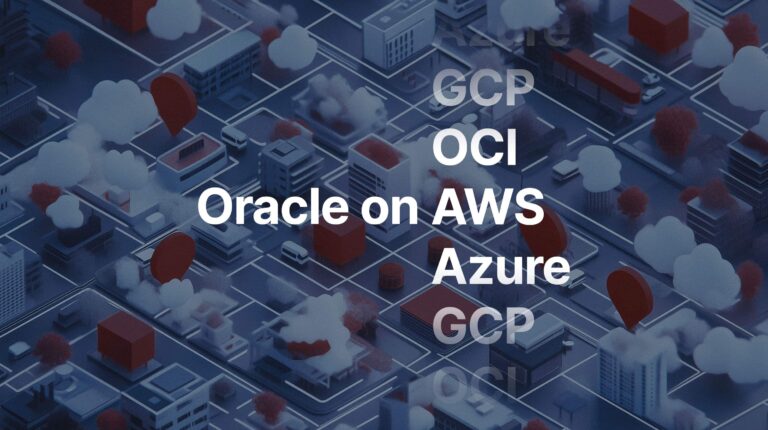Dave Welch (@OraVBCA), CTO and Chief Evangelist
Layman means I’m not an attorney.
Anyone who saw my quote in Nick Budnick’s excellent Portland Tribune piece on the September 15, 2016 CoverOregon settlement would know I’m concerned. I said, “Oracle made out like a bandit with this.”
I believe Budnick’s investigative reporting on the CoverOregon/Oracle feud excelled. See also his September 15, 2016, and November 29, 2016 articles. Budnick and I discussed much during our interviews, only a fraction of which made it into his articles, and understandably so.
Oregon Attorney General Rosenblum had filed suit against Oracle at the request of then-Gov. John Kitzhaber. However, when Governor Kate Brown came to office, she made it known publicly that she viewed the State’s action against Oracle as a liability. The Oregonian report continued, “Oregon’s hands weren’t clean in the Cover Oregon mess. The state’s oversight of the project was marred by mixed signals, feuding state bureaucracies and questionable technical competence.” Whatever the State’s contributions to the project’s failure may have been, I believe Brown’s public liability statements were ill-advised.
Why should I, or any other non-Oregon citizen, care about this settlement? For one thing, as a federal taxpayer, I’m interested in seeing how much of the $305M in Federal money dumped into the CoverOregon IT initiative can be clawed back. Governor Brown’s answer to a question on that topic included, “These settlements are very challenging to resolve, and all of the parties had to do some give and take in order to resolve the matter.” Yet, it would seem from Budnick’s reporting that the settlement is structured in such a way as to make such a recovery of the Federal funds difficult. I see no compensation whatsoever for the Federal constituency in the actual settlement. Budnick obtained a redacted copy of the Settlement Agreement and Release from the State of Oregon’s Department of Justice, and subsequently shared it with House of Brick.
It appeared to me that AG Rosenblum was on a roll, as validated by the court’s denying Oracle’s request for a change of venue and allowing for the possibility of punitive damages in addition to multiplied damages associated with a racketeering charge—both of those shortly before the settlement. But suddenly upon the settlement announcement, Rosenblum said, “I want to thank the teams from Oregon and Oracle who have worked so hard to find a way to put this unfortunate episode behind us. This settlement outcome is a “win-win” for the people of Oregon—without the expense and continued impact on our collective psyche.” She also said, “We now intend to work together again, and I call upon the good representative to let go of the acrimony and political bashing and join Oregon and Oracle in making positive changes in our IT systems going forward.” I’m afraid I’m not buying that, but rather reading it in light of settlement article 17’s joint media release “with text to be agreed upon…” If there is anyone that I really feel for in this whole thing, it’s Rosenblum.
The Oregon Department of Justice included this in its settlement press release:
Oracle is funding a $10 million “Oracle STEM Education Program” through the Oregon Community Foundation to fund Science Technology Engineering and Math (STEM) in Oregon schools, and Oracle will reimburse $25 million in Oregon’s legal fees.
A few items of interest from the settlement agreement:
- Is it any surprise that Oracle dumped such a generous collection of products into the Unlimited License Amendment (ULA)’s Exhibit A? I believe Oracle not only dodged significant liability but shrewdly transformed the settlement into a sales opportunity. I’d love to mock up a 10-year ROI projection on this deal from Oracle’s perspective.
- There are dramatic differences in the Oracle ULA Certification (ULA exit) clause compared to the Pinellas County Florida 2010 ULA draft, for example. But, that comparative analysis will be beyond the scope of this post.
- Why would the State of Oregon cede leverage by releasing all claims on Oracle Corporation professionals on September 12, 2016, days in advance of the September 15, 2016 settlement, and apparently without recourse? (Settlement Agreement and Release, Recitals: I.)
- Why would the State of Oregon wait over nine months, until July 1, 2017, for the first $5M STEM Education Program payment and until June 30, 2018 for the remaining $5M? (Settlement Terms, 2. STEM initiative)
The closest comparable situation I am aware of to the State of Oregon/Oracle unpleasantries is the State of California’s efficient persuasion of Oracle to unwind its 2001 $95M contract. Inadequate ROI analysis was just one of the California/Oracle agreement’s substantive defects.
State of California/Oracle contract background (also gleaned from articles here, here, and here):
May 2001 contract:
- Six year deal united scores of software contracts under one mega contract. The $95M face value mega contract could have cost the State as much as $126M. The contract was let without competitive bid.
- Oracle’s estimated ROI for the State: $100M over six to ten years.
Unwinding of the 2001 contract:
- By early 2002, the State had paid $52.7M to Logicon.
- State agencies were beginning to operate under the mega contract.
- A State auditor’s after-the-fact analysis: As much as $41M in incremental costs compared to the State former arrangements.
- An aid to incumbent Governor Gray Davis accepted a campaign contribution from Oracle in the same time frame as the contract. Davis returned the contribution when the contribution became publicly known.
- May, 2002: Davis publicly announced his intent to rescind the contract and avoid related expense on the part of the State.
- The legislature allowed the charter for the State department of IT to expire June 2002 without renewal.
- Several senior State officials either resigned, were suspended, or were fired due to allegations of negligence and misconduct in their interactions with Oracle and Logicon.
- May, 2002: The State initiated rescission negotiations with Oracle and Logicon.
- Conditions were such that Oracle and its reseller Logicon (parent company: Northrup Grumman) had no obligation to rescind the contract.
- On May 8, 2002, Oracle issued this statement.
- The rescission agreement was inked July 23, 2002. It included repayment to the State of a $52.3M loan taken out to fund the deal, including Software Update License and Support, in addition to loan interest and fees. The State confirmed receipt of Oracle’s cash repayment of the full sum the day after the rescission agreement.
- The State launched a criminal investigation. However, it would appear nothing was ever filed against either Oracle or Logicon in the process.
- As the controversy unfolded, State Assemblyman Dean Florez—the outspoken critic of the mega contract—suffered dismissal as chairman of the Joint Legislative Audit Committee rather than compromise his position.
- Oracle’s web page to voice its side of the story (http://www.oracle.com/california/) is no longer available (including at archive.org).
My observations on the California resolution:
- The State was returned to the conditions that existed prior to the contract. All money paid to Logicon was returned to the State. As such, no money was lost on the original projects.
- The State’s internal corrective and reorganization actions added pressure on Oracle to own up to any actual liabilities it may have had in the matter. In particular, it was a gutsy move to dismantle the State’s IT division given its $2B in annual spending oversight by rescinding its charter. The legislature of the union’s most populous state would have understood there would no doubt be short-term pain associated with that.
Although the two episodes are dissimilar in many ways, how The State of California unwound the mess is most instructive.
I’ve said often that the greatest challenges we face within IT are the human dynamics, not the tools we adopt or build. If any agency, bureau, department, or office within the State of Oregon should believe there may be merit to the vendor-misrepresented expertise and software capabilities, unfulfilled commitments, and unethical business practices alleged in the State’s dismissed claims, would it now believe that risk of such dynamics has suddenly evaporated? Complex software doesn’t install itself. Budnick quotes KPMG as estimating “that the state would need to spend between $490-515 million to implement a fraction of the software contained in the (Oracle deal).” Could such expenses be the smallest of State entities’ problems moving forward?
For such large projects in general, I suggest invoking professional services and software capabilities breach of contract clauses sooner rather than later could be advisable.
Budnick quoted me as advising State of Oregon entities “… not to touch any of that free software, absolutely none, until after they have done an analysis that spans at least 10 years.” The State of California learned that it’s suboptimal to have the software vendor own the ROI study. Furthermore, the ROI/feasibility analysis needs to include a de-conversion plan even if there may be no intention to ever de-convert. In this regard, I observe that as a group, public sector entities can be more prone to tolerating a system stack status quo than their private sector counter-parts. This CoverOregon settlement has un-funded obligations written all over it. It may appear that the candy shop door is wide open with no attendant at the register. It’s not. The Ordering Document (Settlement Agreement and Release) section B. General Terms, 7. Total Support Stream post-ULA annual, perpetual obligation should be framed on the wall of every state operative with authority for IT implementation decisions.
I am not unsympathetic to the observations as to how far behind many of the State of Oregon’s entities may be with respect to rudimentary IT capabilities. Sales pitch follows. State of Oregon agencies, bureaus, departments, and offices: House of Brick would be most happy to help assess your IT needs with respect to how they may or may not be optimally fulfilled via implementation of Oracle products available to you under the agreement.






